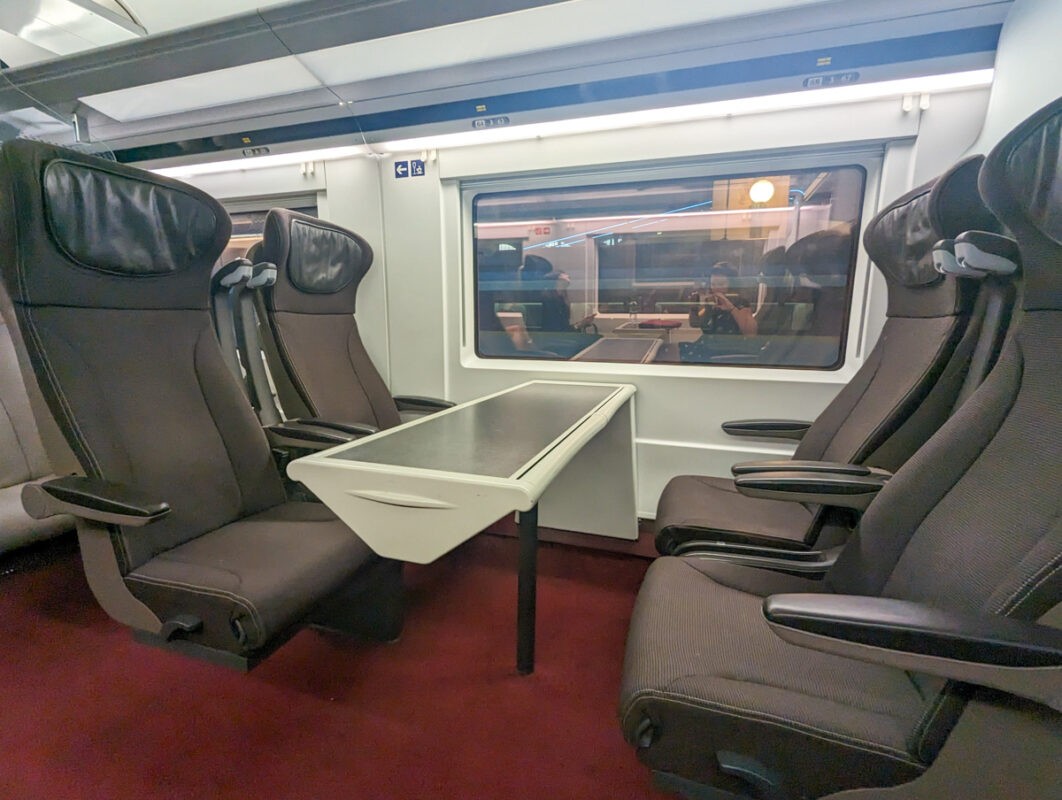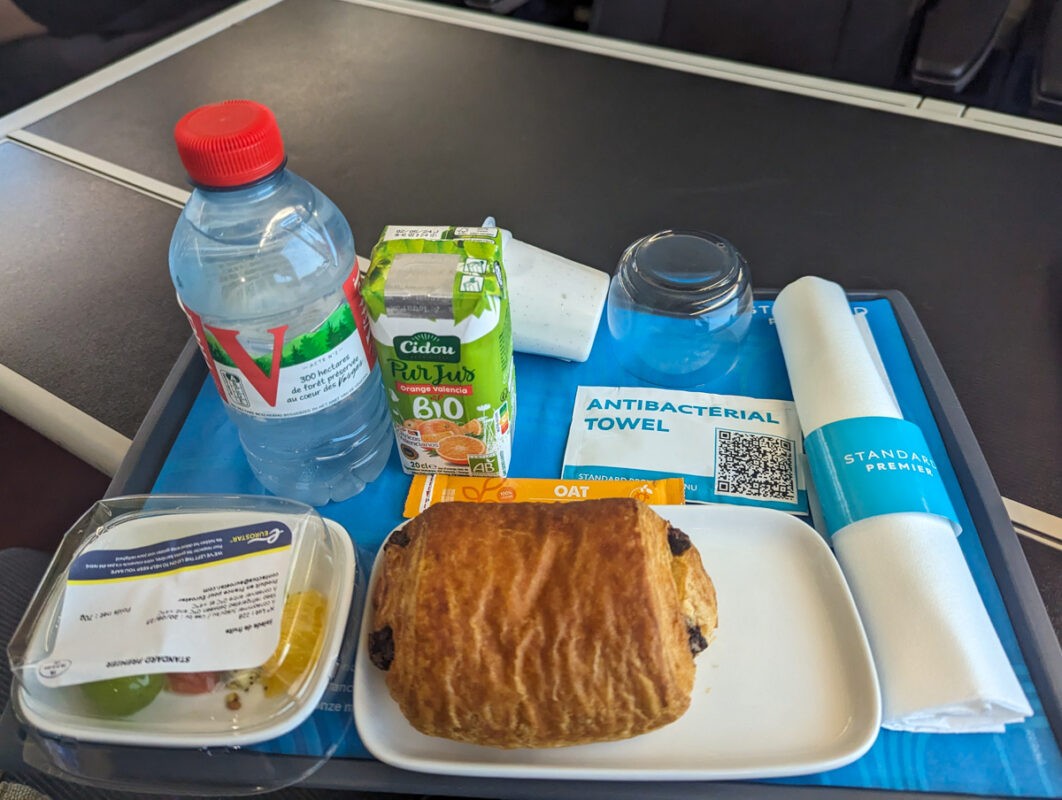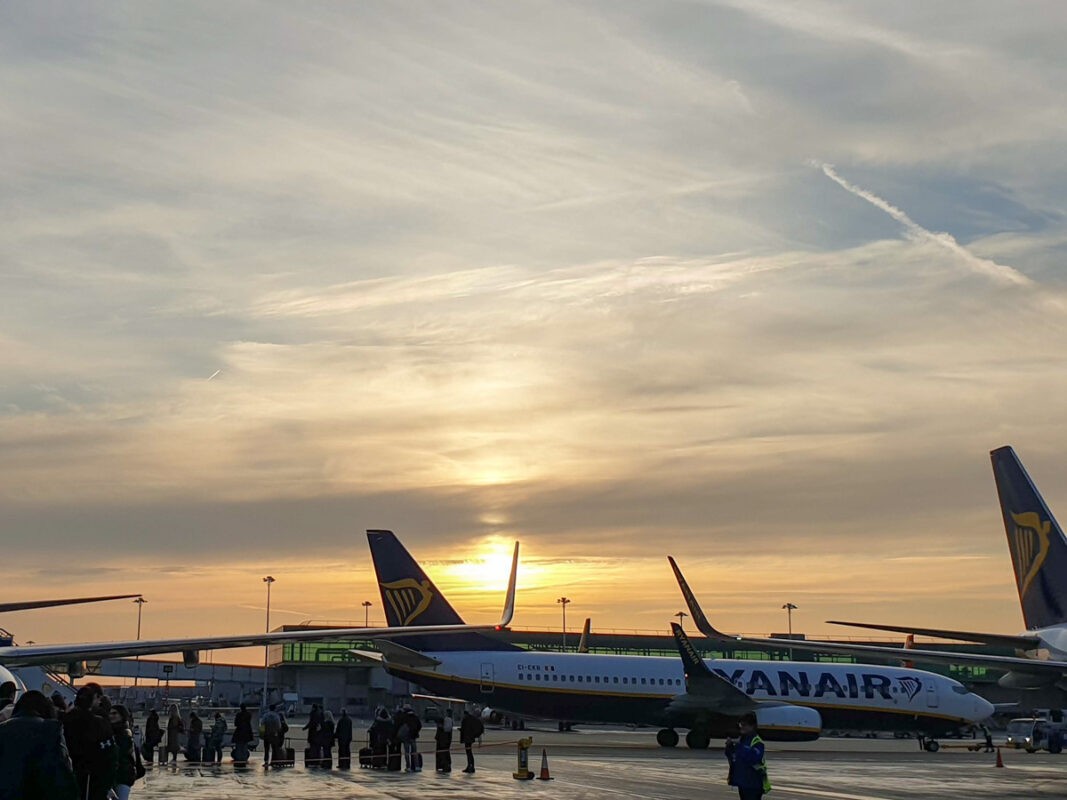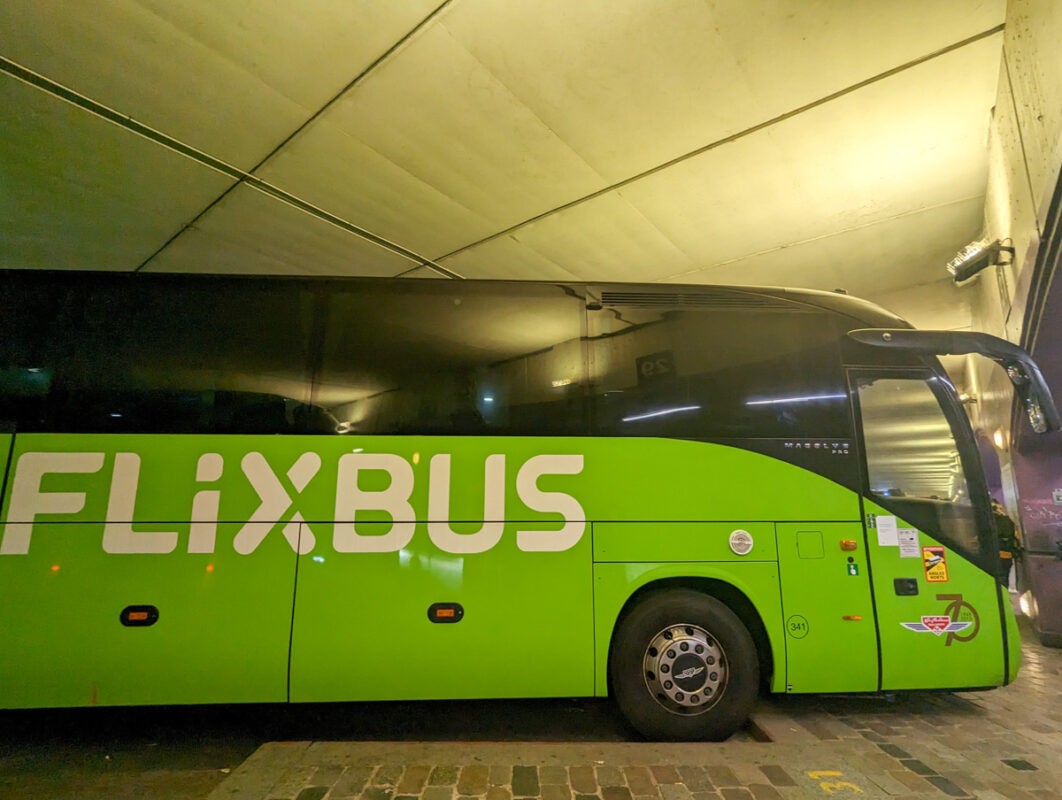If you’re wondering how to get from London to Paris, this article’s for you!
The glittering capitals of London and Paris have long been bucket list destinations for keen Europe travellers.
Both cities boast history and culture; but, despite their relatively short distance from one another, their atmosphere and way of life can starkly contrast.
The capitals sit a mere 214 miles from one another, making it relatively easy to travel between the two. In fact, there are multiple options – and I’d recommend assessing them all before you settle on one!
I grew up in London, and I’ve visited the French capital around six times. I’ve travelled there in many ways, including Eurostar, Flixbus and driving.
So, whether you’re on a Eurotrip around the continent or are living in London and wondering how to get to Paris, here’s my complete guide on how to travel from London to Paris, infused with my personal tips, and the pros and cons of each style of travel.
Eurostar train: the best way to get from London to Paris

Let’s not beat around the bush: the high-speed Eurostar train is regarded by many, including myself, to be the best way to get from London to Paris.
Why? It’s fast (typically faster than flying if you factor everything in!), it’s comfortable and it’s convenient.
Let’s take a look at what the Eurostar is and what a journey looks like on this international train.
Eurostar revolutionized the London-to-Paris travel scene when it debuted in 1994, making use of the world’s longest undersea tunnel, the Channel Tunnel, to connect the two iconic cities on a direct train.
Your journey on this high-speed train begins at London St Pancras Intl, one of Central London’s main stations.
Reaching London St. Pancras Station is easy, regardless of where you are in London; options include taking the Piccadilly Line from Heathrow Airport or the Thameslink train from Gatwick.
Even if you’re already in the city, multiple Tube lines like the Northern, Victoria, and Circle lines converge at this transit hub.
The train journey is about 2 hours and 15 minutes. It feels incredibly fast!
The service frequency is also quite high, with up to 19 daily departures to fit most schedules.
Amenities on the Eurostar are designed to keep you comfortable; you’ll have access to free WiFi (which actually works most of the way!), power outlets, and a bar-buffet car to purchase refreshments.
Service class options range from Standard to Business Premier – ideal if you fancy arriving in Paris in style!
In Paris, the Eurostar train arrives at Paris Gare du Nord, which has quick metro links to most of the city.
Eurostar ticket pricing is quite dynamic. For standard class tickets one-way, expect to pay £50-£100 – although I have seen flash sales with tickets as cheap as £35.
On my recent Eurostar trip, I paid an extra £25 for a Standard Premier ticket.

This included a meal, comfier seats, and a quieter carriage. For me, it was worth the extra expense for a little affordable luxury. Full review and video coming soon!
Pros of Eurostar
- It’s the quickest way from London to Paris – quicker than flying when you factor in travel time to and from airports!
- You’ll have comfortable seats, plenty of amenities and places to purchase food and drinks.
- It has a large luggage allowance, with liquids allowed.
- It departs and leaves from both city centres.
- Upgrades are available for a treat!
- You can easily book online and don’t need a physical train ticket – just a QR code on your phone.
- Train travel underwater is always fun!
Cons of Eurostar
- It can be an expensive option, especially if you’re booking last minute.
How to book Eurostar
You can book Eurostar on the official Eurostar website.
I’d recommend booking as early as possible when you know your dates to secure the best prices!
Flying from London to Paris

Flying might seem like the obvious way to travel between London and Paris, but I actually wouldn’t recommend it!
There are numerous flights linking London and Paris daily.
London is a key aviation hub with no less than six airports (although they’re mostly located a bit of a way out of the city centre!).
The cheapest tickets will be with budget airlines, which typically depart from Stansted or Luton.
British Airways and Air France also connect the two cities; they depart from London Heathrow and Gatwick.
Upon landing in Paris, you’ll likely find yourself at either Paris Charles de Gaulle Airport, which primarily handles international flights, or Paris Orly Airport, located closer to the city centre.
From Charles de Gaulle, RER trains take you to the city centre, while Orly is served by both the Orlyval light rail and various bus services.
Flights are short – it is just a quick hop across the Channel so you’re looking at less than an hour – but you’ll need to arrive at the airport two hours before, allow around 60 minutes to travel to the airport and time to get through immigration and travel from the airport the other way! It could easily take up most of a day.
This is why I wouldn’t necessarily recommend flying – the Eurostar is much quicker and easier!
Pros of flying
- Quicker than road travel options
- Can be cheaper than Eurostar
Cons of flying
- It can take quite a long time, for such a short flight!
- Prices fluctuate, and you’ll often need to pay extra for bags or seat selection.
- There are luggage limits, unlike other options.
- Other ways are more environmentally friendly.
How to book flights to Paris
For best prices on flight tickets, book at least three months in advance through aggregator websites or directly with airlines.
Skyscanner and Kayak offer comprehensive price comparisons.
Driving from London to Paris
Driving from London to Paris is ideal for confident drivers who want the flexibility to visit places en route.
If you have your own car, you can drive it in France, although you’ll need the following:
- Reflective jackets: You should have one for everyone in the car and keep them in an easily accessible place.
- Warning triangle: This is compulsory to carry in case of breakdown.
- Headlamp beam deflectors: There are different rules when it comes to car lights in Paris. Either use deflector beam stickers or adjust the lighting.
If you’re visiting London, you might be able to rent a car; although a lot of rental companies don’t allow you to take their vehicles abroad. You might find that you need to purchase more comprehensive insurance if you want to drive to France.
Next up: crossing the English Channel!
There are two main options here: the Channel Tunnel or taking a ferry.
The Channel Tunnel is quite a unique experience: you’ll drive your car onto a train, which then transports you underwater from Folkestone in the UK to Calais in France.
It’s a unique experience but can be more expensive than the ferries, which depart from Dover and arrive in Calais or Dunkirk.
The drive itself takes around six to seven hours – add on around two hours for the ferry (including embarking/ disembarking) and an hour if you’re taking the channel tunnel.
Fancy breaking up the trip? Stop at Rouen or Amiens.
You’ll need to bring not only your passport, but your driving licence and vehicle registration.
Some French highways are toll roads, so keep some euros handy.
Driving in France has its own set of rules.
First, they drive on the right-hand side, unlike in the U.K.
Pay attention to speed limits, which change depending on weather conditions.
And driving and parking in Paris can be a challenge – if you are driving, I’d recommed staying on the outskirts of the city and taking the train in!
Pros of driving
- You have your own schedule and can leave at the best time for you.
- Convenient for families or groups travelling together.
- You can take a car load of stuff!
Cons of driving
- You won’t want to drive in Central London or Paris.
- Parking can be a bit of a nightmare!
- You’ll need to focus for the entire 6-7 hour journey.
- There are lots of things to think about when driving abroad.
How to plan driving
You’ll need to book your place on the Channel Tunnel (also called EuroTunnel, Le Shuttle or some people refer to it as the “Chunnel”) or on a P&O or DFDS ferry.
Ferry tickets can be as little as £25 per car, although they can rise closer to the time.
They’re usually cheaper than Channel Tunnel tickets.
If you’re renting a car, book with Avis or Europcar, but do double-check the Ts&Cs for driving in France and be aware that you’ll be driving on the opposite side of the road for most of the time.
Coach: The cheapest way to get from London to Paris

Wanting to travel on a budget?
There are buses from London to Paris – some with ultra-cheap tickets!
Companies like FlixBus offer regular services between the two cities.
In London, most international buses depart from Victoria Coach Station, conveniently located near the London Victoria train and Underground stations.
You’ll arrive in Paris at Bercy Seine, which is close to the Paris metro.
The buses are relatively comfortable, but it’s a longer journey (much more so than the Eurostar!).
A bus ride from London to Paris typically takes between nine and ten hours, depending on whether you take the channel tunnel or ferry.
Expect basics like limited WiFi, power outlets, and onboard restrooms – although they’re cramped and smelly – on most services.
Buses are generally the most budget-friendly way to travel between London and Paris, with one-way fares sometimes dipping below £20.
I recently paid around £35 for a Flixbus from London to Paris.
While I didn’t mind the journey – I was lucky and didn’t have anyone sitting next to me – I probably wouldn’t do it again.
I took the night bus, which meant that I was interrupted mid-way to embark on the ferry (I was hoping we’d get the channel tunnel, but alas we didn’t!).
This meant not a great night of sleep!
If you don’t mind night bus travel and are on a budget, it’s worth it. If not, I’d recommend taking the Eurostar.

Pros of taking the coach
- It’s by far the cheapest way from London to Paris.
- If you get two seats to yourself (which definitely isn’t guaranteed!), it can be comfortable.
- You can save on a night’s accommodation if you take a night bus.
- No need to print your ticket or check in – just take your mobile ticket and passport!
Cons of taking the coach
- It’s the longest way to travel.
- You may well be stuck sitting next to a stranger for hours!
- There are some baggage restrictions, although not as many as flying.
How to book the London to Paris coach
Book the London to Paris coach on the Flixbus website.
Ticket prices are usually budget-friendly.
Flixbus has a good refund and change policy, and you can also pay £1.99 to reserve your seat.
I actually paid twice to change my seat, as I was trying to ensure I was sitting on my own – and it worked!
Travelling from London to Paris FAQs

How much is the train from London to Paris?
The cost of a Eurostar ticket from London to Paris varies significantly based on when you book.
Standard class fares can start at around £50 for one-way if booked well in advance; and sometimes they have flash sales where rates dip even lower.
But prices can surge to over £200 for last-minute bookings or during peak travel seasons!
So book your Eurostar as quickly as possible when you know your travel dates.
How do you get from London to Paris cheaply?
The most budget-friendly option for travelling from London to Paris is coach.
Companies like FlixBus offer fares that can sometimes go as low as £20 for a one-way journey if booked in advance!
This includes the ferry/ channel tunnel crossing and takes you straight from the centre of London to the centre of Paris.
Is it better to fly or train from London to Paris?
While flying can sometimes be cheaper and faster in terms of air time, the Eurostar train offers central departure and arrival points which often makes it cheaper.
Eurostar also provides greater baggage allowances and less stringent security checks.
Plus, it’s a more eco-friendly travel option!
Prices of both can fluctuate.
What is the fastest way to get from the UK to Paris?
The quickest way is by Eurostar, at 2 hours 15 minutes (you need to check in just over an hour before).
While the plane has a flight time of approximately one hour, this doesn’t account for additional time spent on security checks, boarding, and transit to and from the airport – which adds a lot of time on to your journey!
Do we need a visa to travel from London to Paris?
At the time of writing, U.K. citizens do not need a visa for short stays in France under 90 days, so if you’re living in London, you’ll be ok for now.
However, we will need an ETIAS in 2024, which is a visa waiver programme.
If you’re visiting London from another country, you may need a seperate kind of visa for France. I recommend checking your government travel advisory website.
Is the plane cheaper than Eurostar?
It’s possible to find budget flights cheaper than Eurostar tickets, especially if you book them well in advance.
However, prices can rise when you factor in the costs of transport to and from the airport and potential baggage fees.
Is it cheaper to fly to London and take a train to Paris?
It can be, depending on where your starting point is and how much Eurostar is!
It might sometimes be cost-effective to use London as a transit point but this isn’t a universal rule.
Is Paris worth a day trip from London?
Yes, definitely! While I’ve never done it myself, my mum and stepdad enjoyed one a few years ago.
To take a day trip from London to Paris, hop on the relatively short Eurostar journey time of around 2-3 hours.
You won’t have time to see everything but you can certainly cover key attractions like the Eiffel Tower, Louvre, and Notre Dame!
Is a day trip to London from Paris worth it?
If you’re based in Paris, a day trip to London from Paris is definitely possible!
Focus on major sights like Buckingham Palace, the British Museum, or the London Eye.
However, you’ll be limited in what you can explore within that time frame.
Distance between London and Paris
The distance between London and Paris, as the crow flies, is 214 miles/ 344 km.
Driving distance is 296 miles/ 476 km.
Can I travel from London to Paris without a passport?
No, you’ll need a passport to travel from London to Paris with at least three months’ validity from the date you intend to leave.
You won’t be able to travel without one!
Is it cheaper to stay in London or Paris?
Cost of living and accommodation prices are comparable in both cities, but London is often considered slightly more expensive overall.
The choice between the two largely depends on your personal budget and what you plan to do during your stay!
How to travel between London and Paris!
Whether your priorities are extra legroom, getting to Paris quickly or finding the cheapest fares, it’s effortless to travel to Paris from London!

